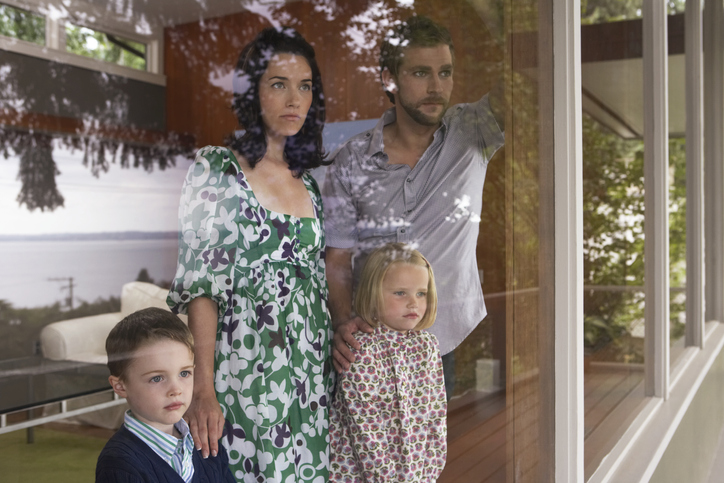Everyone gives relationship advice, whether they’re qualified or not. It’s hard to tell when you’re hearing something worth your time and energy. These controversial opinions sometimes take people by surprise, but they’re actually true for many relationships. Learning about them could help you foster healthier future connections as you search for your person.
1. Exclusivity doesn’t start automatically.

People sometimes assume that going on a first date means you’re off the market for everyone else. If that’s something that matters to you, vocalize it while you’re on that date. Unless you tell your potential partner that exclusivity starts early with you, they’ll likely assume they’re free to keep dating as you both determine whether your relationship will bloom.
2. Former high school relationships don’t matter as much in adulthood.

Having crushes and teenage relationships while you’re in high school is a normal part of growing up. They teach you important lessons about who you are and what you want from future partners, but those connections aren’t as important in adulthood.
By the time you’re in your late 20s, you’ll likely be an entirely different version of yourself because you’ve grown up. Try dating people who weren’t your type back in the day to see who fits the person you are today.
3. Marriage is more of a financial arrangement.

Most marriages don’t involve dowries now, but that doesn’t mean they aren’t still financial arrangements. Signing a marriage contract automatically gets you and your partner numerous tax advantages, like spousal IRAs and lower combined tax rates. If those things won’t improve your financial life, there’s much less reason to make things legally official.
4. Partners shouldn’t spend all of their time together.

Your partner or spouse should be someone you enjoy spending time with. Still, they shouldn’t be your only option. If you’re not comfortable spending time alone or hanging out with friends, you might be in an unhealthy codependent relationship that deteriorates your identity as an individual.
5. Single parents should take things slower than people without kids.

Kids make dating more complicated. They might form great connections with a partner you break up with two weeks later and feel personally responsible for that relationship ending. They can also get hurt if you date someone, introduce your kids, and your partner turns out to be a toxic individual. Single parents have some responsibility to take things slower when they’re dating so they know their partner will be a good influence on their kids.
6. You should find happiness outside of your relationship too.

A healthy relationship is fulfilling, but it shouldn’t be your entire life. You should also find joy outside of moments with your partner. Continue building friendships, finding hobbies and deciding life goals for your self-development. If anything, you’ll prevent yourself from feeling resentful that your partner feels fulfilled by friends and hobbies that don’t involve you.
7. Putting work into a relationship doesn’t mean it should last forever.

Working on a relationship to make it healthier requires commitment. If you don’t see lasting progress, you don’t have to stay in an unhealthy dynamic just because you tried to work things out in the past. You’re always free to end a relationship to find something that better suits you, no matter how long you stayed to improve things.
8. Happy relationships shouldn’t automatically become social media content.

It’s hard to see happy couples posting about their fabulous relationship on social media. When you finally fall in love, you might feel pressured to post about your relationship all the time to prove how great it is. In reality, you should feel content and comfortable enough to post when it feels right and not when you want to prove how great things are going for you.
9. Another couple’s problems don’t instantly make your relationship healthy.

Couples might keep secrets from each other because the trust in their relationships deteriorated a long time ago. You share everything with your partner, so you instantly feel like your relationship is way healthier. Unfortunately, every couple faces different challenges. You might still have things to work through, even if other people are going through seemingly harder times.
10. Feeling comfortable and feeling in love aren’t the same thing.

People who are in love with each other should feel comfortable in their relationship. If you feel comfortable without the butterflies or passion, it isn’t love. Unfortunately, they aren’t the same things. It can take time and therapy to understand which one is more present in your relationship.
11. Opening your relationship should never be a solution to your problems.

Flirting with other people separately or together might sound like a sexy adventure that makes your partner fall more in love with you. It’s something people consider when they feel like they’ve tried everything else to fix their relationships.
Although open relationships can feel fulfilling, you’ll still encounter problems like jealousy if they remain unresolved before you start finding other partners. If you’re looking for a solution to the disconnect you feel with your partner, couples therapy could be a much more effective way to solve your problems. You can always open your relationship afterward if it still feels right.
12. Keeping a passcode on your phone is fine.

Sometimes, people tell their partner to deactivate the passcode on their phone. If you trust your partner, shouldn’t they be able to access your texts and emails at any time? Someone who wants to control you might push for this to feel secure in your relationship. Two people in a healthy relationship wouldn’t care either way because trust already exists.
13. Healthy relationships will always deal with the occasional argument.

Couples have occasional arguments even if they’re super in love, respect each other’s boundaries and support each other equally. If you never argue, one person is most likely changing their values or opinions to become identical. It erases your sense of self, which no one deserves.
The difference is that in a healthy relationship, neither person lets themselves become explosive during the argument. You should both take responsibility during or after your conversation and both work to change whatever led to the disagreement. It requires good communication and self-reflection. Toxic relationships deal with yelling, insults, hurt feelings and a lack of growth after conflicts.
14. Couples don’t have to hold the exact same values.

It’s important to share the same big values with your partner, like what ethical lines you won’t cross or how you view the world. Little values, like rising above road rage, don’t have to be identical. Remember, you’re still two separate individuals. As long as you feel respected and loved, your partner can have different political or religious beliefs without those differences compromising your love for each other.



